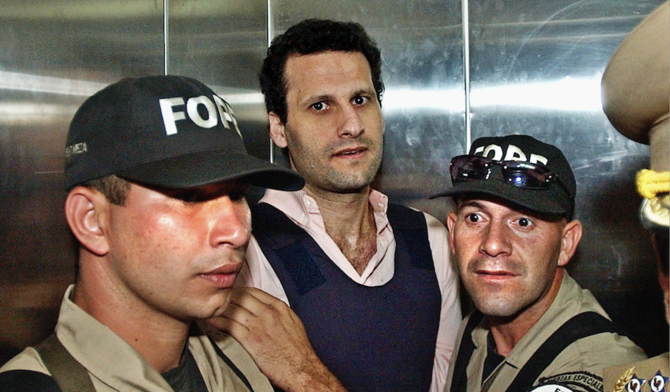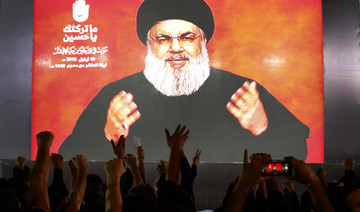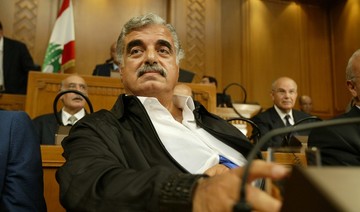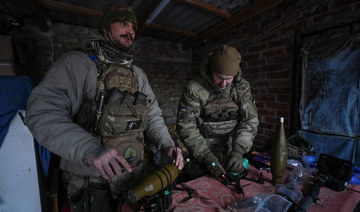SAO PAULO: Brazilian police on Friday arrested a fugitive sought in Paraguay who is accused by US officials of belonging to Lebanon's Hezbollah militia and of being a key financier of terrorism.
Police took Assad Ahmad Barakat into custody in the border city of Foz do Iguacu, which is home to the famous Iguazu Falls and sits where Brazil, Argentina and Paraguay meet.
Authorities in Paraguay are seeking Barakat on allegations of false representation, police said, and Brazil's Supreme Court authorized his arrest earlier this month. The Brazilian federal prosecutor's office said in a statement that Barakat's case meets the requirements for an arrest with a view to extradition.
In Paraguay, Barakat is accused of presenting a declaration of incorrect nationality and omitting information about the loss of nationality, the prosecutors' statement said. Barakat was born in Lebanon but has lived in South America for years.
Prosecutors said they had information that Barakat applied for refugee status in Brazil when he learned of Paraguay's arrest warrant, but that only the recognition of refugee status would prevent his extradition, which was not the case here.
In 2004, the US Treasury Department accused Barakat of serving as a treasurer for Hezbollah, which it considers a terrorist organization, and ordered American banks to freeze any of his assets found in the United States. At the time, Barakat was serving time in a Paraguayan prison for tax evasion. Two years later it added several of his associates to its watchlist, on which Barakat remains.
Brazilian police said Argentine authorities have accused associates of Barakat of laundering $10 million in a scheme in casinos, and they have frozen the group's assets.
Barakat was extradited from Brazil to Paraguay in 2003 and was convicted of tax evasion. He returned to live in Brazil in 2008 after he was released from prison, police said.
SAO PAULO: Brazilian police on Friday arrested a fugitive whom US authorities have accused of serving as Hezbollah's financier and who has repeatedly been accused of illegal activity in a lawless border area where three South American nations meet.
Police took Assad Ahmad Barakat into custody in the Brazilian city of Foz do Iguacu, which is home to the famous Iguazu Falls and sits where Brazil, Argentina and Paraguay converge. The Tri-Border Area, as it is known, has long been a haven for smugglers, traffickers and counterfeiters, and US authorities and others have alleged it is also a redoubt for terrorism support and financing.
Authorities in Paraguay are seeking Barakat on allegations of false representation, police said, and Brazil's Supreme Court authorized his arrest earlier this month.
The Brazilian federal prosecutor's office said Barakat's case met the requirements for an arrest with a view to extradition — but it was not clear when or if that would happen.
In 2004, the US Treasury Department said Barakat was one of the most influential members of Lebanon's Hezbollah militia, which the US considers a terrorist organization. It accused him of using his businesses in the Tri-Border Area as a front for fundraising for Hezbollah as well as coercing local shopkeepers into giving money to the organization.
A Treasury official at the time said he had used "every financial crime in the book" to fund Hezbollah and "underwrite terror," and the department ordered his assets frozen in the United States. Barakat was then serving a prison sentence for tax evasion in Paraguay.
Two years later it added several of his associates to a list of people whose US assets can be frozen and whom Americans and U.S. companies are prohibited from dealing with. Barakat remains on that list.
In a 2001 interview with The Associated Press, Barakat acknowledged that he was a "sympathizer" of Hezbollah but said that did not mean that he supported terrorism.
Attempts to reach Barakat's lawyer were unsuccessful.
The Simon Wiesenthal Center, which researches and advocates against anti-Semitism, hate and terrorism, praised the arrest.
"We have monitored international terrorist activity in the lawless contiguous Triple Frontier region for some 20 years," Shimon Samuels, the center's director for international relations, said in a statement. He added that he hopes the arrest was "a sign that the three countries will begin to drive Hezbollah out of Latin America."
Beyond the longstanding accusations of his involvement with terrorism, Barakat has faced other legal troubles over the years and was even extradited from Brazil to Paraguay once before, according to police. They said he returned to Brazil in 2008 after serving his sentence.
In Paraguay, Barakat is currently accused of presenting a declaration of incorrect nationality and omitting information about the loss of nationality, Brazilian prosecutors said Friday. Barakat was born in Lebanon but has lived in South America for years.
Prosecutors said they had information that Barakat applied for refugee status in Brazil when he learned of Paraguay's arrest warrant, but that only the recognition of refugee status would prevent his extradition, which was not the case here.
Brazilian police also said Argentine authorities have accused associates of Barakat of laundering $10 million in a scheme in casinos, and they have frozen the group's assets.























